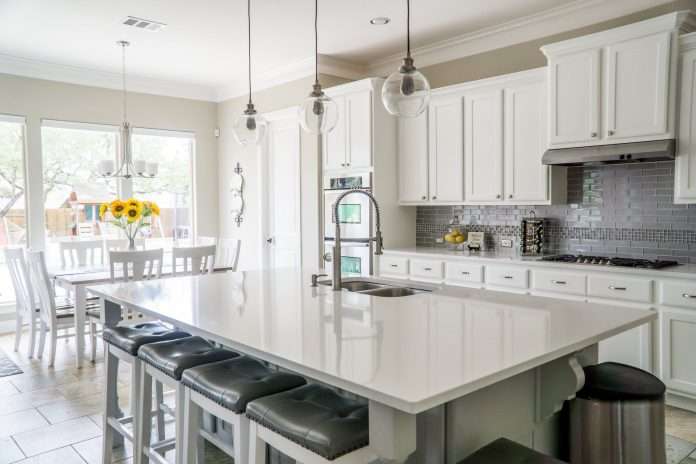When it comes to your plumbing, prevention is better than cure. And while it may be tempting to let small problems continue unaddressed, just because your systems are okay now does not mean they will remain so in the future. Misuse and abuse of plumbing systems can cause emergencies later, which can mean a significant bill from your local plumber that could’ve been avoided if the issue had been addressed before it worsened. Below are some things to consider when it comes to your plumbing, and how to troubleshoot small problems.
Water Heaters
- Often, hot running water at the push of the button is taken for granted. Only when you are left standing for minutes waiting for hot water to flow to no avail do you think to check your water heater for issues. When it comes to that, it’s a good idea to check your thermostat, as well as your water heating component – these may need replacing.
- If rusty water comes out of your taps, it may be time to check your anode rod. This is used to attract corrosive materials in your water and can dissolve over time. Check to see if there is a sulfuric smell caused by this that may show rust and degradation.
Drains
- Ensure that you make use of pop up stoppers and removable sink strainers to protect your drains from debris and waste particles that may end up accumulating in your pipes. Keep an eye on your sink and ensure that you throw out the debris into the trash instead of letting it go down the drain, and once a month, use an environmentally-friendly cleaner solution to help remove build-up in your drains.
Toilet Issues
- Clogged toilets are a nightmare, and usually, the first resort is to use the ever-trusty plunger. You know toilets are clogged when, aside from the water not flushing, the water may be slow to go down, waste particles may not go down the drain completely, and the water level remains high and goes down minutely over time. Using a plunger can help to unblock your toilet. However, this may not be enough to dislodge the blockage, and you may need to use a snake drain or a wet and dry vacuum to clear the passageway and return your toilet to functioning normally.
If none of those methods worked, or if you have been able to temporarily fix an issue but feel it’s only a matter of time before it returns to its original state, it may be time to call in an expert. It isn’t enough to just look for a plumber on your chosen search engine. For quality service, it really pays to do your research. And because you used the tips above, there’s a good chance that you won’t have to pay the sometimes added cost of calling out for emergency plumbing services too. But what do you really need to know when it comes to hiring Perth plumbers?
1. Get community recommendations
Often, asking for recommendations from people in the community about their trusted plumbers can be extremely helpful to get you started. Not only do you have the guarantee of good and efficient service, but you will have an idea of the cost and their skills.
2. Use Google
That said; do not just rely on word-of-mouth recommendations. There are a myriad of plumbers available and the one best suited for your plumbing issue may be one you have yet to hear about.
3. Read up on each company’s FAQ
Companies put a lot of information on their FAQ pages that can be really helpful for you to narrow down your list of plumbers to call and see if they are a good fit for your needs.
4. Check for call-out fees
A cursory glance at most plumbing websites may not provide you with a tangible quote to work with immediately but check if they charge for call-outs and assessments if the information is available.
5. Keep in mind your location
Plumbers who work in your suburb will have a deeper knowledge of common plumbing problems in the area, and may already have first-hand experience fixing an issue that may be common to your area, be it north or south of the river.
6. Do a certification check, and see if the prospective plumber undergoes training regularly
Qualified plumbers should be able to provide certifications are required. Most plumbing companies will state if their plumbers undergo regular training to keep their skills up to date, too.
7. Check for warranty
If the information is available, check what type of warranty is offered, whether it is material manufacturer warranty or warranty for job done in case your system may need further repairs or something is faulty.
8. State-of-the-art equipment
This goes hand in hand with regular training. Skilled, updated plumbers will have both the knowledge and the confidence to fix plumbing issues with the latest equipment available.
9. Ask about insurance cover
To protect both you and your plumber, see if there is information about them having insurance in place for possible accidents or damage to your home.
10. Call around, compare prices
Of course, most of this information may not be readily available. Call and talk to them about your plumbing issue, and ask for whatever information you may not already have. But don’t hire the first plumber you call! Compare the quotes you receive.
11. Be mindful of pricing
It may be easy to go with the cheapest quote you are given, but consider that there is a standard hourly rate. If your cheapest quote is well below this, it may be that this plumber may not have the right certifications necessary for the job.
12. Be proactive, is this issue classified as an emergency?
While you may have been able to address the issue with temporary fixes, some plumbing problems can run deep and may require action sooner rather than later, so you don’t end up with bigger problems down the line.















